When it comes to hair care, there are a lot of ingredients, treatments and methods that claim to do miracles. While most of them are false and show absolutely no change at best, there are definitely some that can completely help transform your hair game, and folic acid is one of them. If research is to be believed, folic acid or vitamin B9, is considered to be a total elixir that helps in revitalising, reviving and rejuvenating your hair while promoting tremendous growth. Experts claim that taking folic acid supplements help in improving hair growth, increasing hair volume, enhancing shine and preventing greying. Basically, folic acid or folate is the answer to most of your hair woes, including age-related hair thinning and stunted hair growth. Sounds too good to be true, right? In this article below, we are going to list down everything you need to know about folic acid for hair. Right from what folic acid is, and what its benefits are, to how to use folic acid and what are its best sources, this article covers it all. So, without wasting any more time, let's get started...
01What is folic acid?
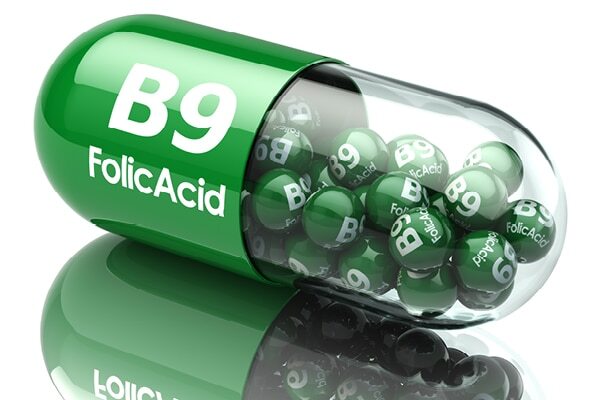
Folic acid is a synthetic derivative of vitamin B. It is often used in a number of supplements and foods, as it is extremely beneficial to the human body. Folic acid is actually a man-made version of folate, which is generally found in a lot of plant and animal-based foods. Since folate cannot be naturally produced by the human body, folic acid is the synthetic supplement that delivers the essential nutrients of folate to the body.
02Benefits of folic acid for hair
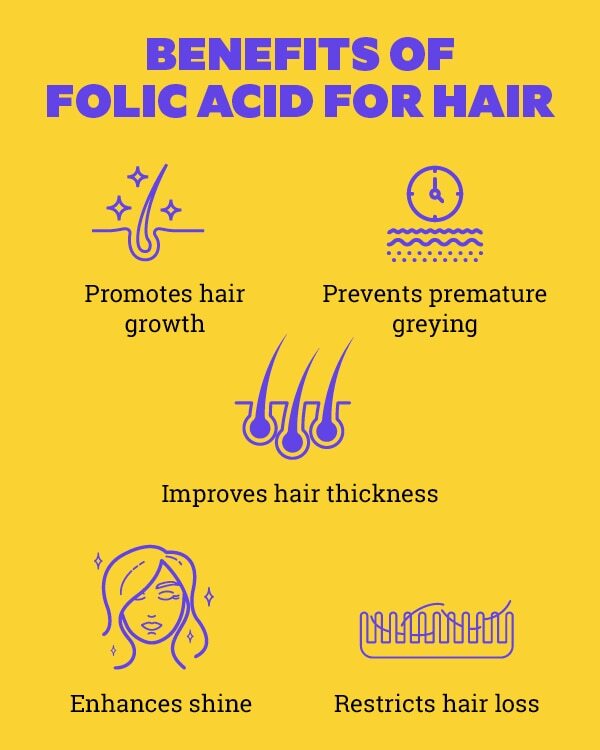

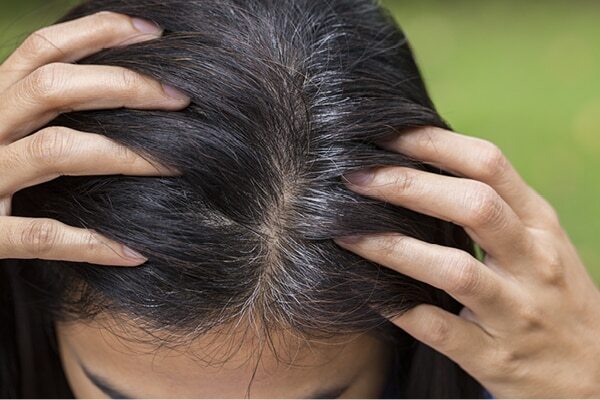
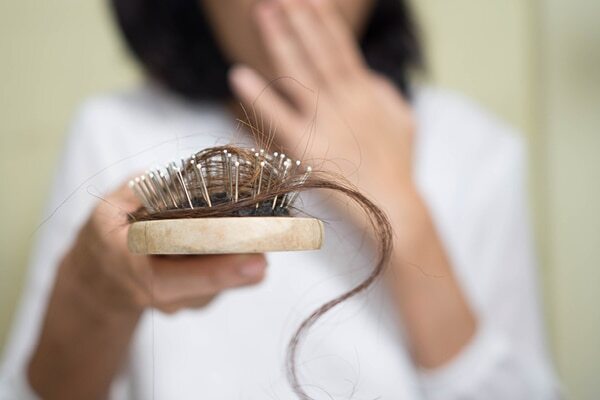

Folic acid is an extremely important nutrient, especially for your hair. The main function of folate is to increase the production of red blood cells in your body. Since red blood cells help in carrying the essential vitamins, nutrients and oxygen to various parts of your body, including your scalp, folic acid is extremely beneficial when it comes to solving a wide number of hair problems. The most common benefits are – The most important benefit of folic acid for hair is that it can bring about hair growth and volume. Since folic acid helps in increasing red blood cells in the body, it can quicken the process of cell division, which promotes healthy and lustrous hair growth. Additionally, folic acid also helps in the keratinization of hair, which simply means it helps your follicles produce larger amounts of keratin, to strengthen hair and in turn, promote growth. Another benefit of folic acid for hair is its ability to keep the red-blood cells in your body normal and in a stable state. As soon as there is a deficiency of folic acid in your body, there could be an overproduction of red blood cells, which could result in loss of hair pigment, leading to premature greying. If you are struggling with major hair loss, then it would make sense to get the level of folic acid in your body tested. A lack of folic acid prompts your body to withdraw, sending a major part of nutrition to other essential functions over your hair, which can cause a lot of hair loss. When your body has enough folic acid, it does a better job at distributing all the essential vitamins, nutrients and oxygen all over your body, including your hair. When your hair gets enough nutrients and has experienced better blood circulation, it automatically starts to look healthier and develops an unmistakable shine. As seen earlier, folic acid helps in cell division, which is extremely important in preventing hair loss and improving the health of your hair. Additionally, this cell division, coupled with the better distribution of nutrients and oxygen to your scalp helps in growing your hair a lot thicker and healthier.
03How to use folic acid for hair growth?
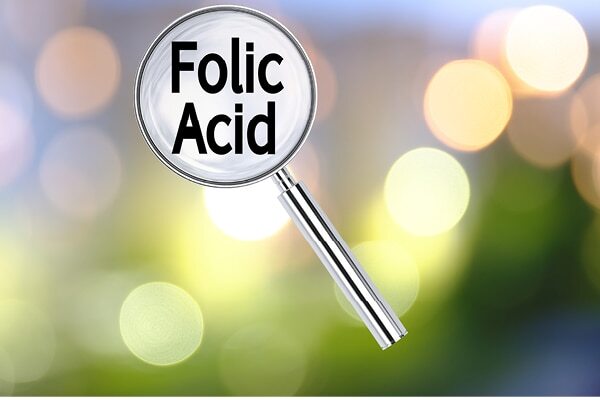
Since folic acid is such an important nutrient for having long, healthy and lustrous hair, there are several sources through which you can meet the needed quantities. From naturally occurring plant and animal sources to supplements, you can meet your daily folic acid requirements through any one of the following three ways –
1. Supplements –
There are a lot of multivitamin supplements available in the market that contain folic acid. Any supplement that contains vitamin B complex will have the required amount of folate and can be consumed after speaking to your doctor.
2. Diet –
Folic acid is also found in a lot of food sources, especially dark green leafy vegetables such as broccoli, spinach, beans, green peas, cilantro, etc.
3. Maintain stress levels –
One of the most common reasons for having weak, damaged hair and experiencing hair loss is stress. Stress produces cortisol, which can prevent your body from delivering the essential nutrients, including folate, to your scalp, which can then result in hair loss, thinning and premature greying As seen earlier, folic acid helps in cell division, which is extremely important in preventing hair loss and improving the health of your hair. Additionally, this cell division, coupled with the better distribution of nutrients and oxygen to your scalp helps in growing your hair a lot thicker and healthier.
04Things to keep in mind about folic acid for hair

While folic acid is extremely essential for keeping your hair healthy and promoting hair growth, there are certain things one should keep in mind. Before taking supplements, it is always better to speak to your doctor, run a few tests and only then jump on to taking supplements, if recommended. Self-prescription of folic acid could have an adverse effect as too much or too little folic acid is bad for your body. The most common side effects of folic acid are headaches, rashes, nausea, and skin reactions.
05FAQs about folic acid for hair

Q. What is the daily recommended dose of folic acid for adults?
**A. **According to experts, the daily requirement of folate in adult men and women is 400 micrograms. It is important that you do not consume more than this amount as it can have various side effects like headaches, irritated skin, mood swings, fatigue and even hair thinning.
Q. What are the best natural sources of folic acid?
**A. **Even though folic acid supplements are pretty common, it is indeed possible to meet your daily requirement through simple everyday foods as well. Dark green leafy vegetables such as broccoli, beans, spinach are rich sources of folic acid, but you can get it from other sources like citrus fruits, poultry, meat and nuts.





